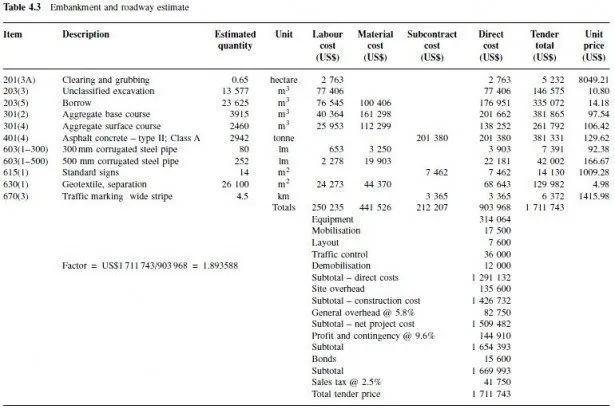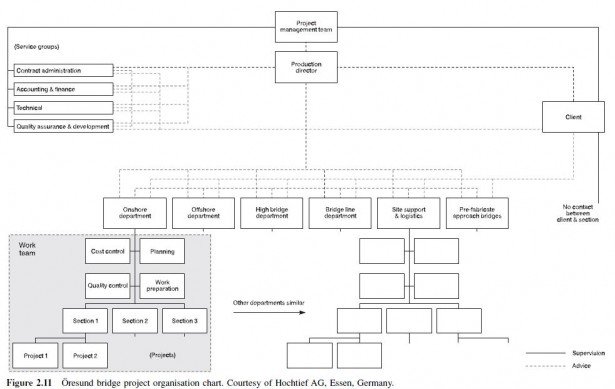The final category of direct cost includes work that will be performed by subcontractors. Typically these are specialty contractors that will sign a contract with the general contractor for work in such areas as painting, plumbing, electrical work, concrete finishing and traffic control, if their proposals are accepted and if the general contractor is chosen. Generally, the contractor wants to engage subcontractors whose prices are lowest, but there are other considerations. If four subcontract proposals are received for electrical work, the contractor will want to inquire about the qualifications and reputations of each, in a similar way that the owner is interested in the contractors qualifications. Further, the instructions to tenderers may provide that the owner has the right to accept or deny the contractors choice of a subcontractor. Beyond all that, the contractor must be very diligent to ascertain exactly what each subcontractor has included in its proposal. It is unlikely the electrical subcontractor will make an offer to provide all materials and perform all work contained in Division 16 (electrical work in Construction Specifications Institute (CSI) specification format). In nearly every case, subcontractors will provide qualifications or exceptions in their offers. One may exclude all testing and any concrete bases for electrical equipment. Another may attach a condition that the general contractor will unload any delivered materials, while another may exclude (1) the provision of a piece of gear it knows will be difficult to acquire and (2) all testing. Considerable analysis may be required to determine the overall cost impact of these qualifications and thus to select the subcontractor whose price will be included in the overall cost estimate. Subcontract offers may be provided to the general contractor either on a lump-sum or unitprice basis. If a lump sum, as would be likely with electrical work, they are simply added to the other items. If they are given on a unit-price basis, the product of that proposed price times the estimated quantity becomes the estimated cost of the item; examples might be rock excavation on a per-cubic-metre basis or concrete slab finishing based on the area in square metres.

